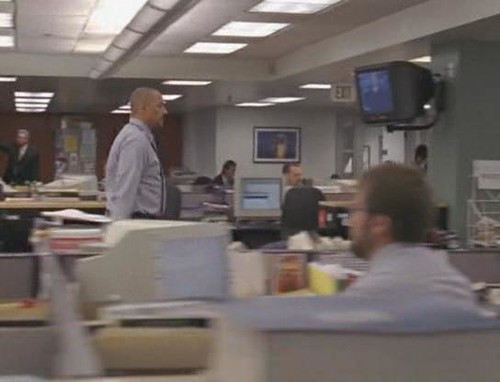According to Broadcastnow (H/T Play or Get Played), David Simon is thinking about the CIA as his next muse. I do think this would be very interesting development and a cool idea to do a TV show about if done well. It's also more fodder for Simon's ability to twist genre conventions with what happens in reality. What's more classic than the Bond spy thriller, yet further from the lived reality of CIA agents?
As Treme wraps up its filming and goes down the paths where Simon has less control (namely, to the HBO programming execs), he starts to think of his next project. I wonder how he made the various decisions to choose his new work. GK was inspired by a book of the same name. We could see Simon's fascination with US foreign policy even as The Wire was in full production ("Got them WMDs! Shit's gonna blow you up!" "New Package! Bombs over Baghdad!"). The injustice done to New Orleans in Katrina's aftermath seemed to inspire Treme, or at least Simon's attraction to the city. Obama's recent release of OLC torture memos and public scrutiny over the CIA's role is an obvious suspect for a CIA series. Yet Simon's explicit interest in the CIA's "history" leads me to think he's read a few highly regarded works on the CIA published recently.
Buried in the article are a few other project possibilities. A show on the battle to desegregate public housing would be extremely interesting (to me) (Confidential to DS: I would be a great choice for background material researcher!). Likewise, dramatic rendering of the assassination of Lincoln is always great fodder for a miniseries, but I fear it's been done too many times to have much new ground to cover.
In any event, history plays a major role in all three show concepts. I eagerly await the next episode.

As Treme wraps up its filming and goes down the paths where Simon has less control (namely, to the HBO programming execs), he starts to think of his next project. I wonder how he made the various decisions to choose his new work. GK was inspired by a book of the same name. We could see Simon's fascination with US foreign policy even as The Wire was in full production ("Got them WMDs! Shit's gonna blow you up!" "New Package! Bombs over Baghdad!"). The injustice done to New Orleans in Katrina's aftermath seemed to inspire Treme, or at least Simon's attraction to the city. Obama's recent release of OLC torture memos and public scrutiny over the CIA's role is an obvious suspect for a CIA series. Yet Simon's explicit interest in the CIA's "history" leads me to think he's read a few highly regarded works on the CIA published recently.
Buried in the article are a few other project possibilities. A show on the battle to desegregate public housing would be extremely interesting (to me) (Confidential to DS: I would be a great choice for background material researcher!). Likewise, dramatic rendering of the assassination of Lincoln is always great fodder for a miniseries, but I fear it's been done too many times to have much new ground to cover.
In any event, history plays a major role in all three show concepts. I eagerly await the next episode.





